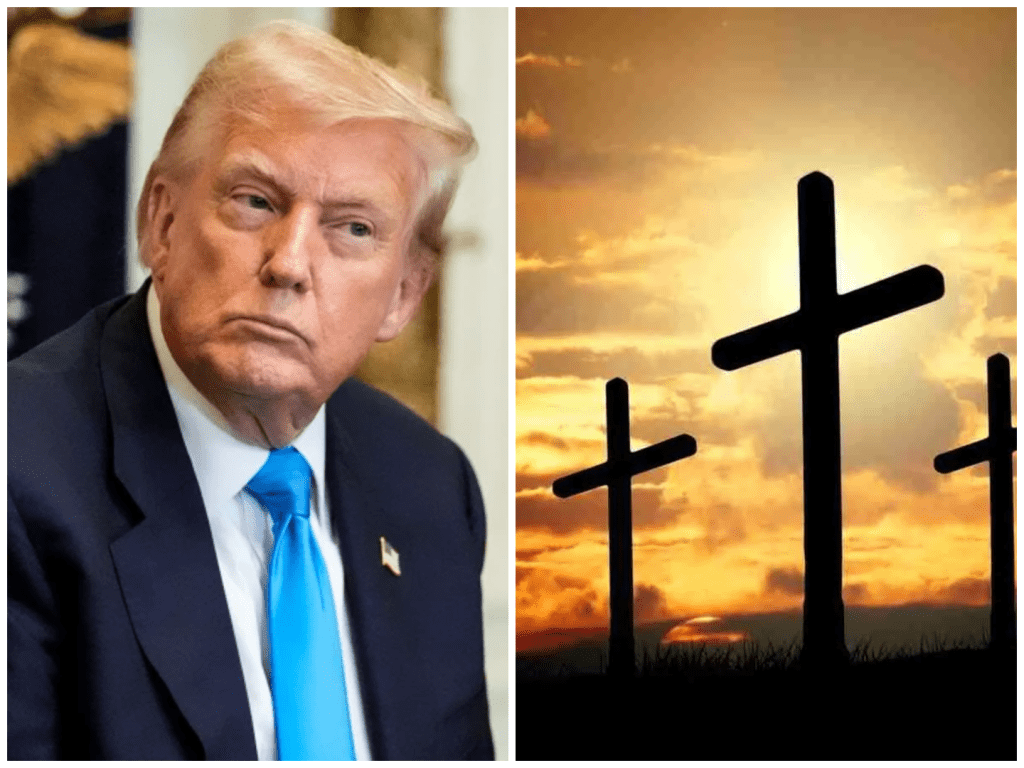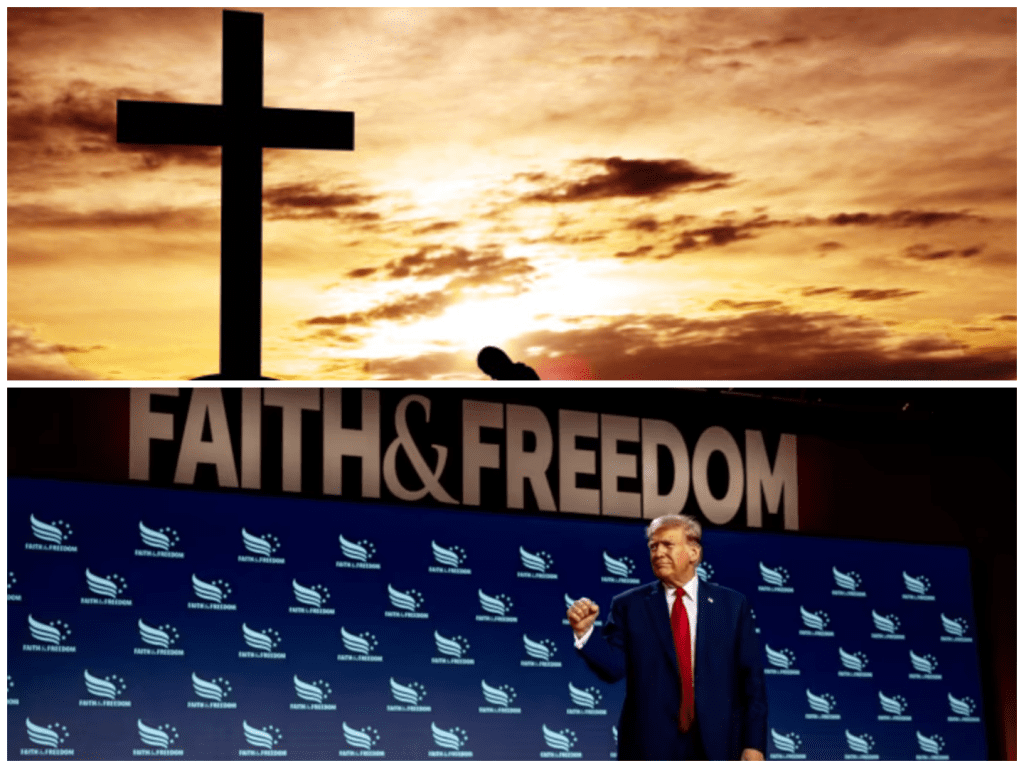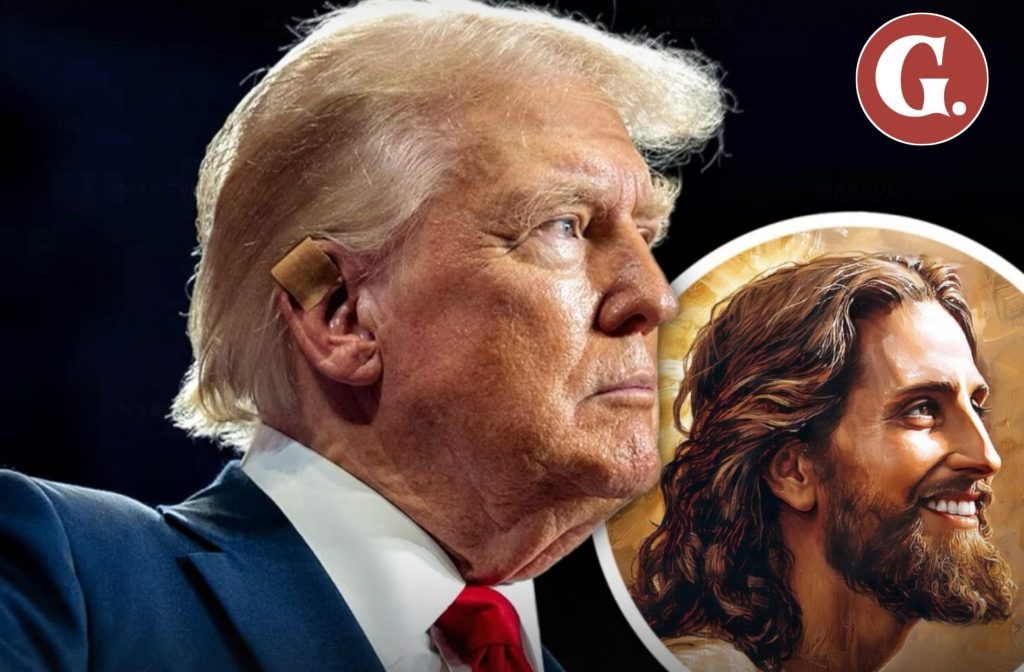Trump Administration Issues Memo Letting Federal Employees Display Religious Items and Even Preach Their Faith at Work—What It Means for Government Offices
The other night I paused, staring at that image of Trump prompting Bibles and crosses in federal workplaces, and felt a mix of surprise and unease. The policy seems almost surreal—federal employees now have permission to carry their faith openly on the job. Let me walk you through what’s changed and why it matters, told more like a story than a policy summary.
In late July 2025, the Trump administration, via the Office of Personnel Management, quietly issued a memo with a deceptively simple title: Protecting Religious Expression in the Federal Workplace. But what it actually did was shift the tone entirely. The memo states that federal employees may now openly display a Bible, crucifix, mezuzah, or rosary—even preach, pray in groups during breaks, or invite coworkers to church. Supervisors are allowed to discuss their faith and encourage others to reflect on it, as long as it doesn’t become harassing. The core message was clear: religious expression should not only be tolerated—it should be encouraged.

It’s a major shift. Previous administrations kept religion behind closed doors: quiet prayers in corner cubicles or selective accommodations for religious holidays. This memo changes that. Scott Kupor, the OPM director, said employees should never have to choose between their career and their faith. Agencies are being urged to review their policies and clear out any hidden roadblocks to religious expression.
That’s the official story. But what struck me was how fast reaction flooded in. Supporters celebrated this as a victory for the First Amendment—finally, a federal job where you don’t lose your faith at the front door. Opposition voices, however, warned of growing pressure, favoritism, or even “Christian nationalism in practice,” as secular critics put it. One worried aloud: what if declining a coworker’s church invitation becomes career-limiting? And can a policy rooted in “restore faith” avoid alienating non-Christian or nonreligious workers?
Legally, the policy leans heavily on Title VII of the Civil Rights Act, and even cites the Supreme Court’s Groff v. DeJoy decision from 2023. That case underscored that employers must accommodate religious needs unless it causes significant hardship. But memos don’t change court rulings. Courts could later narrow—or even overturn—these allowances if they lead to harassment or favoritism. Kupor’s memo isn’t binding law; it’s a strong recommendation wrapped in executive authority.

Critics warn that supervisors encouraging their subordinates to take part in faith-based events could easily edge into coercion. The memo tries to limit this by saying conversations must stop when someone says they’re unwelcome—but how subtle must refusal be before it’s recognized? The ethics lines feel paper-thin. Meanwhile, supporters applaud the openness and say this corrects decades of institutional bias. The Faith Office and Religious Liberty Commission—both Trump-era initiatives—are finally getting teeth.
There are also public-facing examples: park rangers who lead tours may join guests in prayer; VA doctors may pray with a patient; bulletin boards can host religious flyers. These were hypothetical until now. But today, these hypothetical scenes are official guidance. And that amplifies the debate—because federal employees serve people from all faiths, or no faith at all.
Emotionally, the policy reveals a lot about our national identity. It’s as if a long-simmering conversation about religion in public life finally blew the lid. Those who felt marginalized for wearing a cross or talking about faith quietly under the radar now feel seen. Others see the shift as eroding the secular buffer that government workplaces once maintained. The policy doesn’t just affect prayer corners—it affects workplace culture, legal standing, and public perception.
So where does this leave us? If you’re a federal employee of faith, you now have new protections—perhaps even encouragement—to practice openly. If you’re secular, religious, or non-Christian, you may feel less certain of whether respect extends your way. The lines between church and state, once cautious, now blur openly.
Whether services become more spiritual or more tense depends largely on leadership. Respecting voluntary expression doesn’t guarantee harmony. As critics say: zeal without boundaries can create division faster than unity.
What stays with me most is the phrase Kupor used: federal workers should never have to choose between their faith and their career. That phrase carries weight—but it also begs questions. What if faith becomes performance? What if silence becomes complicity?
Only time—and real workplace experience—will show how this policy plays out. But what we’re witnessing isn’t small. It’s a cultural signal: religion now has formal breathing room in the everyday life of government employees. The debate will only heat up—from HR policies to Congressional oversight, to employees’ rights and citizens’ expectations.
Because when faith enters the halls of power, it doesn’t stay politely contained. It becomes policy, identity, and sometimes, controversy.


